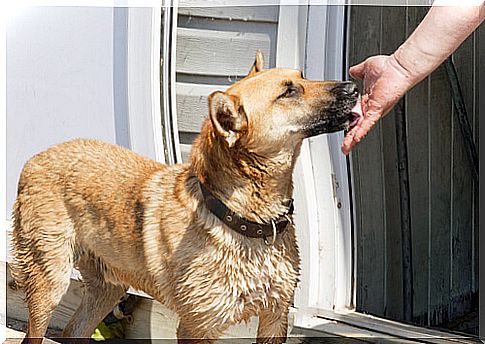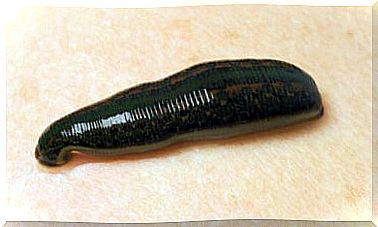Can A Dog Have Senile Dementia?

Many of the diseases that dogs suffer are like those that humans suffer from. Some seem more incredible than others, that is, it seems incredible that a pet can have it. For example, senile dementia.
Can a dog have senile dementia? Yes, and we wanted to dedicate an article to it. We tell you everything we know about this terrible disease that does not understand species.
Senile dementia in dogs

Dogs older than 7 years can present poor balance, dizziness, confusion, disorientation and a host of other symptoms that make up this terrible disease: senile dementia.
It is nothing more than a wear and tear on the nervous system that is normally generated in older dogs.
Canine senile dementia symptoms
The symptoms of senile dementia can also be observed in other pathologies, so it is vital that as soon as you see one or more of these signs, you go without fail to the vet, since it could be something more serious.
- Loses orientation. This refers to places that are well known to the dog. If you don’t know where you are or where you need to go to do one thing or another, you may be suffering from dementia.
- Does not respond to stimuli. If you have lost interest and you no longer like being with people or just the opposite, you become compulsively attached, you may also have dementia.
- Lost look.
- Walking aimlessly.
- Agitated by day and wandering at night.
- It takes time to recognize the family
- Appetite disorders.
- He does his little things inside the house.
Treatment of senile dementia in dogs
Being in close contact with the veterinarian in these cases is necessary, not only to diagnose the degree of dementia, but to apply the appropriate treatment as well as receive advice that makes the animal’s life easier.
Each owner will decide whether or not they want to administer drugs to their animal, since these only work when the dementia is not very advanced, otherwise they do not make sense.
The most used drugs, in case the vet prescribes some, are:
- MAOI. They are inhibitors of the amino oxidase enzyme that reduce free radicals, therefore, they act as neuroprotectors.
- Ginko Biloba. This improves blood flow to the brain and improves the cognitive system.
- Nicergoline. It increases the flow of the brain and also reduces free radicals, thus protecting the neuronal area.
How to help a dog with senile dementia

As we always tell you and we will continue to do so, affection and love is vital for an animal to feel good.
- Pet your pet as much as you can, but try not to interrupt him when he is sleeping
- Make him homemade food to stimulate his sense of taste and smell, since manufactured dry foods do not smell and taste the same
- Make him not find many barriers in his environment. One of the main symptoms is loss of orientation, so easing your way from the bed to the feeder, for example, will make your life easier
- Don’t break his sleep cycle and if he wanders around at night, make sure he does so in a safe place
- Be patient and don’t scold him for his behavior. Remember that it is something that is beyond your control. He will do things that you don’t like and that he didn’t do before
- Love him like never before and make him feel loved, protected, helped …
Nothing better than affection, love and patience to improve the quality of life in the last days of your pet. Cheer up!









